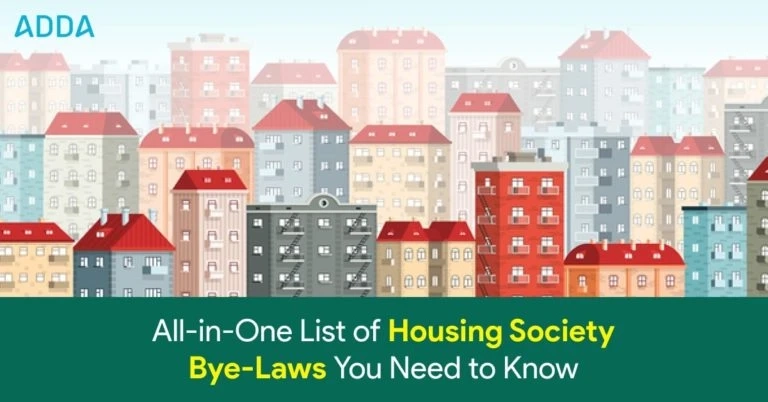As members of a society, we all have certain responsibilities and obligations towards each other. One of the ways in which these responsibilities are governed is through the implementation of housing society bye-laws. In this article, we will discuss everything you need to know about society bye-laws, including their purpose, implementation, and enforcement.
What are Society Bye-Laws?
Society bye-laws are rules and regulations put in place by a society to ensure that its members comply with certain standards of behavior. These rules are designed to promote the well-being of the society as a whole and to ensure that all members are treated fairly and equitably.
Purpose of Society Bye-Laws
The primary purpose of society bye-laws is to maintain a harmonious environment within the society. They provide a framework within which members can coexist and interact with each other in a respectful and productive manner. Society bye-laws also help to promote social order, prevent disputes and conflicts, and ensure that all members of the society have a safe and comfortable environment to live in.
Implementation of Society Bye-Laws
The implementation of society bye-laws is typically the responsibility of the society's governing body. The bye-laws are usually drawn up and approved by the members of the society and are then enforced by the governing body. This may involve the appointment of a dedicated committee responsible for overseeing compliance with the bye-laws and dealing with any violations.
Also read about: Apartment management system
Enforcement of Society Bye-Laws
Enforcement of society bye-laws is a critical aspect of maintaining the integrity of the society. Members who violate the bye-laws may be subject to disciplinary action, which can range from a warning or fine to suspension or expulsion from the society. The disciplinary process should be fair, transparent, and consistent, and the penalties should be commensurate with the severity of the violation.
Common Society Bye-Laws
There are several common types of society bye-laws that are typically implemented by societies. Some of these include:
Maintenance and upkeep of common areas: Society members may be required to maintain and upkeep common areas such as parks, gardens, and playgrounds.
Noise pollution: Society members may be required to limit noise levels during certain times of the day to avoid disturbing others.
Parking: Society members may be required to park their vehicles only in designated areas to avoid blocking access to other members.
Waste disposal: Society members may be required to dispose of waste only in designated areas to maintain cleanliness and hygiene.
Pet ownership: Society members may be required to follow certain guidelines when it comes to owning pets, such as keeping them on a leash and cleaning up after them.
Conclusion
Society bye-laws play an important role in promoting social harmony and order within societies. They provide a framework within which members can coexist and interact with each other in a respectful and productive manner. Society bye-laws also help to prevent disputes and conflicts and ensure that all members of the society have a safe and comfortable environment to live in.
In conclusion, it is important for all members of a society to be aware of the bye-laws that govern their behavior. By complying with these bye-laws, we can help to create a harmonious and productive society that benefits all its members.


